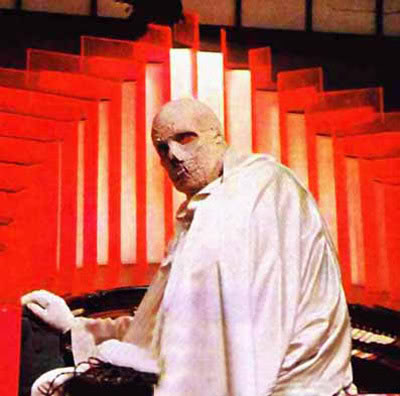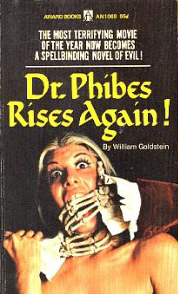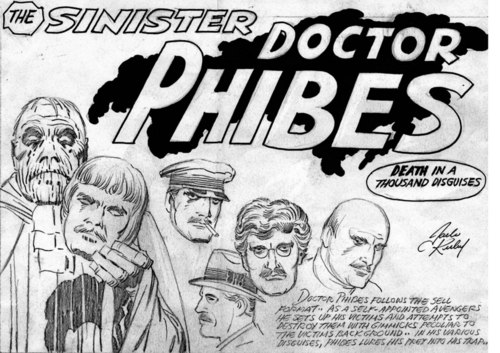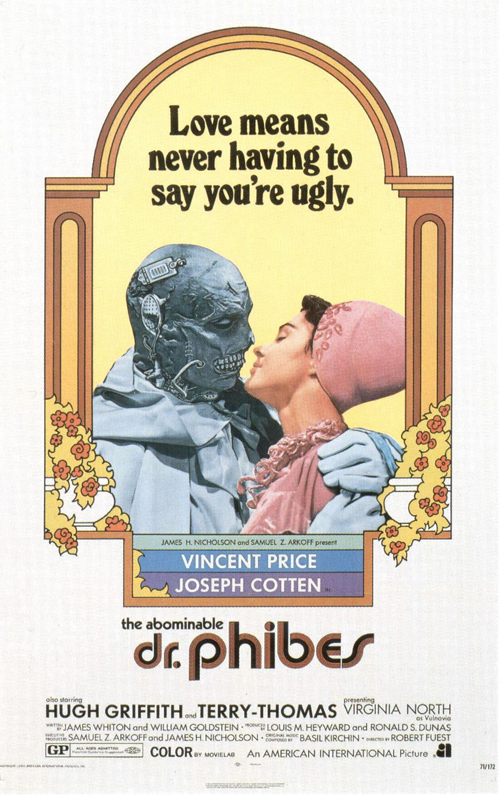
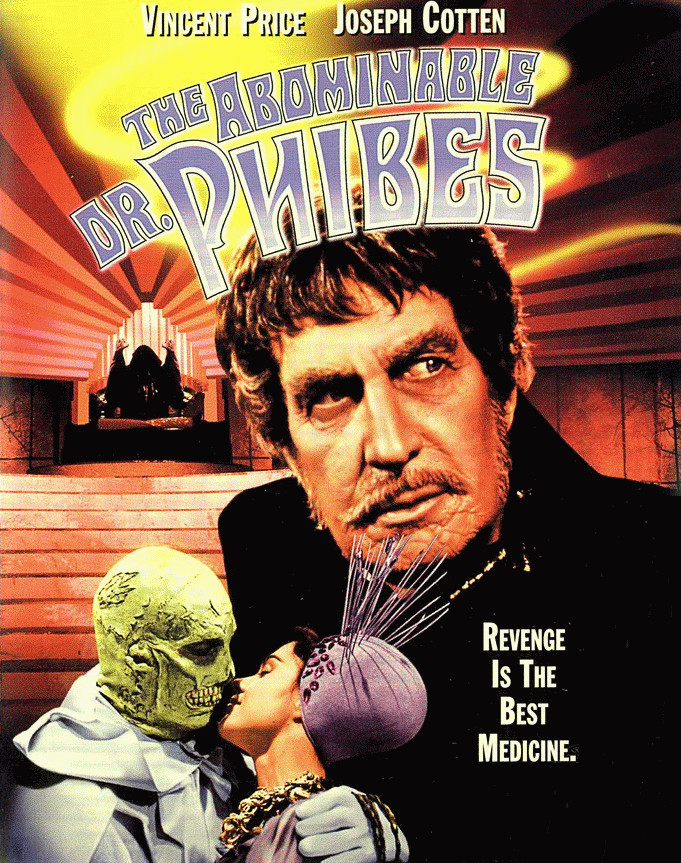 The Abominable Dr. Phibes (1971) starring Vincent Price has long been one of my favorite films. I re-visit it once or twice each year and it always retains a freshness and vitality that separates it from other movies that I love. When asked to explain why it resonates with me to such a degree, I would invariably state that it is the perfect mix of horror and comedy. It never descends into the level of a spoof, but it has a delightfully anachronistic and intentionally offbeat bent with its art deco sets, lurid murders, campy score, and over-the-top performances. The film is a valentine to the mystery fiction of Edwardian England that saw the transition from Sherlock Holmes to Dr. Fu Manchu, but filtered through modern sensibilities that delight in the sensationalistic villainy and the preposterousness of detectives matching wits with murderers as if they were schoolboys playing a game.
The Abominable Dr. Phibes (1971) starring Vincent Price has long been one of my favorite films. I re-visit it once or twice each year and it always retains a freshness and vitality that separates it from other movies that I love. When asked to explain why it resonates with me to such a degree, I would invariably state that it is the perfect mix of horror and comedy. It never descends into the level of a spoof, but it has a delightfully anachronistic and intentionally offbeat bent with its art deco sets, lurid murders, campy score, and over-the-top performances. The film is a valentine to the mystery fiction of Edwardian England that saw the transition from Sherlock Holmes to Dr. Fu Manchu, but filtered through modern sensibilities that delight in the sensationalistic villainy and the preposterousness of detectives matching wits with murderers as if they were schoolboys playing a game.
While all of the above is certainly true, my attraction to the material runs deeper. Viewing the film as a valentine to Edwardian thrillers sparked a thought about Halloween. For most, it is a time for children to play dress-up and collect candy from their neighbors, but there is another side to the holiday that is decidedly grim. Halloween also evokes sadness and tragedy, lost love, memories of happiness never to be reclaimed, it is fitting it is an Autumnal holiday for it is a celebration of the bittersweet and the tragic. I suspect that is the root of what leads some adults to still cling to the Classic Horror films of the last century before horror became synonymous with splatter films and torture porn. Horror used to be reflective of unfortunate lives, lamentations of those cursed or forsaken. That association is still strong for those who are out of step with the world around them and feel separated from the rest of the world by the weight of their pain. Halloween and Classic Horror are a remembrance of our painful pasts that we transfer to entertainments depicting others’ pain and torment.
Unsurprisingly since The Abominable Dr. Phibes marked the transition from Classic to Modern Horror, the character of Dr. Phibes is a tragic one despite his madness and the atrocities he commits. William Goldstein created the character in an unpublished story he called “The Finger of Dr. Pibe” (as the character’s name was originally rendered). Along with James Whiton, Goldstein adapted the story as a screenplay entitled The Curses of Dr. Pibe. The script was optioned and found its way to AIP, a regular distributor of drive-in exploitation fare then in its waning days. Along with the novel, Dr. Phibes that Goldstein would author as a movie tie-in for Award Books in the US and Tandem Books in the UK, there is a consistency in these seminal works that laid the foundation for the film and that is the fact that the material is completely lacking in the camp humor that director Robert Fuest and star Vincent Price would delight in bringing to the screen.
…
Read More Read More
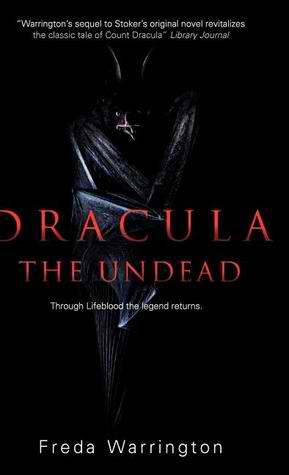
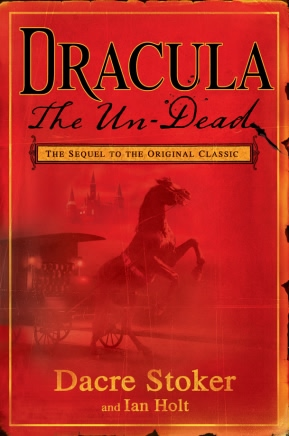 I belong firmly to the camp of Bram Stoker fan that approached Dacre Stoker and Ian Holt’s Dracula the Un-Dead with great anticipation and left disappointed. Well, actually appalled might be a more apt description of the reading experience. Had I not had my jaws wired shut at the time I read the book, I would have described myself as speechless. Severn House, a small press that has been kicking around for at least forty years when they took over Tom Stacey’s imprint, decided to capitalize on the attendant hoopla of a Stoker descendant co-writing a sequel to reprint an earlier literary sequel with very nearly the same title.
I belong firmly to the camp of Bram Stoker fan that approached Dacre Stoker and Ian Holt’s Dracula the Un-Dead with great anticipation and left disappointed. Well, actually appalled might be a more apt description of the reading experience. Had I not had my jaws wired shut at the time I read the book, I would have described myself as speechless. Severn House, a small press that has been kicking around for at least forty years when they took over Tom Stacey’s imprint, decided to capitalize on the attendant hoopla of a Stoker descendant co-writing a sequel to reprint an earlier literary sequel with very nearly the same title.
